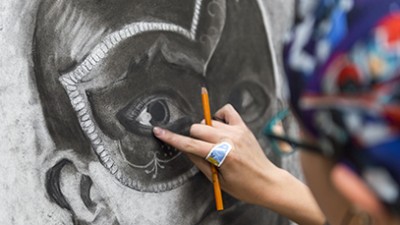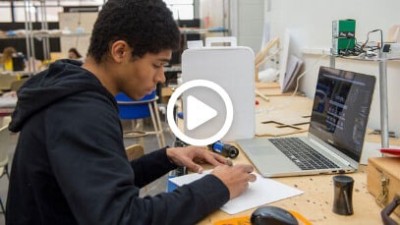
Melissa Dawson
Associate Professor
Melissa Dawson
Associate Professor
Education
BS, Cornell University; MS, Philadelphia University
Bio
Melissa Dawson is an Associate Professor of Industrial Design at Rochester Institute of Technology in Rochester, NY USA, who earned a BS in Textiles & Apparel at Cornell University and a MS in Textile Design at Philadelphia University. Melissa has spent both her professional design and academic careers espousing the technological complexities of successful soft product design. Over the last several years, Melissa has used her experience to successfully integrate formal soft goods product design courses into RIT’s internationally-ranked Industrial Design undergraduate and graduate programs through the creation of RIT Soft Studio. Melissa’s scholarship interests include RIT Soft Studio’s Abracemos lo Nuestro Project, which empowers traditional Paraguayan textile artisans with design strategies to encourage innovation in new product applications. Melissa is currently on the Fulbright Specialist roster and working on her PhD in Textile Science & Engineering.
Select Scholarship
Fulbright Specialist Program
Amount: 0
Currently Teaching
In the News
-
January 2, 2024
![graphic with a man in a gray suit next to the words, Connections with Evan Dawson.]()
Should we limit the number of new clothing items we purchase each year?
WXXI’s “Connections” program features Melissa Dawson, associate professor and director of the undergraduate industrial design program.
-
May 11, 2023
![Josh Owen, Melissa Dawson and Clare Maxwell pose in front of Vignelli fabric, while a second photo of regalia using Vignelli fabric sits below.]()
Vignelli-inspired regalia to debut at commencement
Associate professor Melissa Dawson and Clare Maxwell '23 (industrial design) designed a cap and gown using fabric from the Vignelli archives for Josh Owen, director of the Vignelli Center for Design Studies, to wear at commencement.
-
March 10, 2023
![four college students posing for a photo at a conference.]()
Students benefit from interdisciplinary work during Emerging Creatives Student Summit
Students across the country, including four from RIT, came together last weekend to explore the question ‘what do we want our future to look like?’ during the Alliance for the Arts in Research Universities (a2ru) Emerging Creatives Student Summit.
Featured Work
2021 ID MFA Graduate Studio II: Play with Purpose
2nd year MFA Industrial Design Students
Each graduating MFA student was responsible for designing a collection of educational toys appropriate for children between the ages of birth and 8 years. Product aesthetics were defined by and...
2021 Senior Soft Studio II: National Parks
Senior Industrial Design Students
Each student designed soft goods product based on inspiration gathered from a chosen US National Park. Identifying a key observation from selected artifacts found within the Vignelli Center for Design...
Explorations in Wet Felting
Melissa Dawson
Three-dimensional wet-felted pieces made from merino, silk chiffon, and silk throwsters waste. Exhibited in 2019 CAD Faculty Exhibition, Rochester Institute of Technology, Rochester, New York USA.










